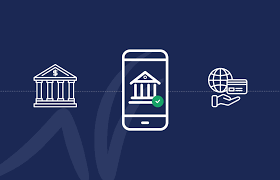Understanding the Differences Between Digital and Traditional Banks for Business Accounts
In the rapidly evolving financial landscape, businesses have a variety of options when choosing the right bank account to support their growth and operational needs. Two primary types of banking institutions dominate the scene: digital banks and traditional banks. Each offers distinct advantages and potential drawbacks that entrepreneurs must weigh carefully. This article provides an in-depth analysis of both digital and traditional banks, highlighting their characteristics, the benefits and limitations of each, and guidance on deciding which banking solution best fits your business strategy and expansion plans as of 2025.
What Are Digital Banks?
Digital banks, also known as neobanks or online-only banks, operate primarily through digital platforms without traditional brick-and-mortar branches. They leverage modern technology to streamline banking services, providing users with quick access to accounts, easy funds transfer, intuitive interfaces, and often lower fees compared to conventional banks. The appeal of digital banks lies in their ability to facilitate fast account setup and efficient day-to-day banking, which is particularly beneficial to startups and small businesses seeking agility.
Many digital banks allow entrepreneurs to open business accounts within minutes, with minimal paperwork and streamlined verification processes. This speed and convenience cater well to businesses in their early stages or those prioritizing operational simplicity and cost-effectiveness. However, while digital banks excel in technology-driven services and fast accessibility, they may lack some aspects critical to comprehensive business support, such as personalized advisory services, in-depth lending options, and physical presence.
Key Advantages of Digital Bank Accounts
- Swift account setup and onboarding processes;
- Lower operational fees and transparent pricing;
- Intuitive mobile and web applications with 24/7 access;
- Integration with various digital tools such as accounting software, payment gateways, and invoicing platforms;
- Real-time transaction notifications and spending insights;
- Customer support primarily through digital channels, including chatbots, email, or phone.
Limitations of Digital Banks
Despite their advantages, digital banks generally lack certain features essential for businesses planning substantial growth or requiring comprehensive financial services. Digital banks often do not have physical branches, which can limit face-to-face consultations and services like cash handling or notarization. Furthermore, many digital banks offer limited business loan products or lines of credit, which are vital for businesses seeking expansion financing.
Another consideration is the perceived credibility with partners and lenders. Traditional banks with long-established reputations may convey greater trustworthiness to investors and institutions, potentially influencing loan approvals and partnerships. Therefore, businesses must assess whether the speed and convenience of digital banks outweigh the need for broader financial advice and physical presence.
Traditional Banks: A Solid Choice for Credibility and Comprehensive Services
Traditional banks operate through a network of physical branches and offer a broad range of financial products tailored to businesses of all sizes. From small startups to large enterprises, traditional banks provide in-person advisory services, customized loan programs, merchant services, and cash management solutions. These services are often essential for fostering business growth and securing additional funding.
One significant benefit of traditional banks is the physical presence. Having a branch nearby allows business owners to discuss financial matters with expert bankers directly, build long-term relationships, and access off-the-shelf as well as tailored financial products. Traditional banks typically have more robust compliance and security frameworks, which can be critical for businesses in regulated industries or handling sensitive financial data.
Advantages of Traditional Business Banking
- Established physical branches for face-to-face consultations;
- Wide variety of business loans, credit lines, and financing options;
- Personalized customer service and relationship management;
- Enhanced credibility with financial partners and lenders;
- Integrated services including cash handling, merchant accounts, and treasury management;
- Extensive compliance oversight and security protections.
Considerations When Choosing Between Digital and Traditional Banks
Selecting the right banking institution for your business involves evaluating various factors, including the speed of account setup, service offerings, scalability, customer support, and long-term reliability. Below are essential points to consider when making this decision:
- Assess the urgency of your business banking needs. Digital banks offer fast account opening, which can significantly reduce delays in financial operations.
- Evaluate the need for physical interaction. Traditional banks provide face-to-face advisory services that can be invaluable for complex financial decisions.
- Consider the types of financial products required. If your business anticipates seeking substantial loans, credit, or cash management solutions, traditional banks may offer more comprehensive options.
- Analyze the integration capabilities with your existing business tools and platforms, where digital banks often excel.
- Review fee structures and ongoing costs, as digital banks tend to be more affordable but may have limitations in services.
- Reflect on your company's growth plans for 2025 and beyond to ensure the banking partner can support scaling operations.
- Factor in the importance of bank credibility for your clients, partners, and investors.
Making the Right Choice for Your Business Growth
The decision between digital and traditional banks ultimately depends on your unique business needs, operating style, and long-term objectives. If your priority is speed and convenience with basic business functionalities, digital banks may provide an ideal solution. However, if your business requires comprehensive support, physical access to banking professionals, and extensive financing options, a traditional bank might be the better fit.
It is also worth considering a hybrid approach, where businesses maintain accounts with both a digital bank for day-to-day operations and a traditional bank for financing and advisory services. This strategy can harness the strengths of each banking model to optimize operational efficiency and financial stability.
How to Get Assistance with Your Banking Needs
Recognizing the nuances of banking options can be overwhelming, especially for new business owners. If you require expert guidance in selecting the most suitable bank account tailored to your business's growth plans, we invite you to reach out for personalized assistance. Our team at Legal Marketplace CONSULTANT specializes in providing comprehensive support and consultations to help you navigate these decisions effectively.
Please feel free to contact us through the communication channels available in our bio or send a private message for confidential and detailed advice. Our goal is to equip you with the knowledge and tools necessary to make informed banking choices that foster your business's success in 2025 and beyond.
Legal Marketplace CONSULTANT is dedicated to full and comprehensive legal and financial consulting services for businesses and individuals. Our team consists of specialized lawyers, consultants, auditors, and accountants committed to supporting your business growth and compliance needs.
Choosing between digital and traditional banking solutions requires a careful balance of speed, convenience, support, and reliability. Digital banks offer rapid setup and intuitive digital tools that appeal to fast-moving businesses. Meanwhile, traditional banks provide the established frameworks, extensive financial products, and personal relationships necessary for substantial business growth and credibility.
Ultimately, the right choice aligns with your business's specific needs and ambitions for 2025 and beyond. For tailored advice and professional assistance, do not hesitate to contact Legal Marketplace CONSULTANT through the provided communication channels. We stand ready to help you make banking decisions that secure and propel your business forward.































